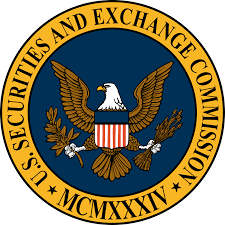Securities firms will have to change how they market themselves starting Nov. 4, but many firms are not ready for the sweeping reforms.
 Nearly two years ago, the Securities and Exchange Commission (SEC) unveiled major changes to the way that securities-trading firms can advertise under the Investment Advisers Act, and the “Modernized Marketing Rule” reforms take effect Friday, Nov. 4.
Nearly two years ago, the Securities and Exchange Commission (SEC) unveiled major changes to the way that securities-trading firms can advertise under the Investment Advisers Act, and the “Modernized Marketing Rule” reforms take effect Friday, Nov. 4.
However, the mandated changes will require “significant time and resource investment from firms,” says Bill Simpson, compliance principal at Hearsay Systems, a provider of a compliance platform for managing digital communications.
“The new Marketing Rule — in its efforts to shore up investor protection — provides an unparalleled opportunity for advisors to differentiate themselves and create a competitive advantage, but also requires significant time and resource investment from firms in order to ensure compliance,” Simpson says.
Officially, the SEC announced the new rule on Dec. 22, 2020, updating the Investment Advisers Act of 1940, which had not been “amended significantly since its adoption over forty years ago,” according to the SEC.
“The amendments create a single rule that draws from and replaces the current advertising and cash solicitation rules, Rule 206(4)-1 and Rule 206(4)-3, respectively,” according to the SEC. “The final rule is designed to comprehensively and efficiently regulate advisers’ marketing communications. The Commission has also made related amendments to Form ADV, the investment adviser registration form, and Rule 204-2, the books and records rule.”
The sweeping reforms govern the definition of advertisement, general prohibitions, testimonials and endorsements, third-party ratings, and performance information generally.
Despite the lead-up to the actual start date for the reforms, many firms may not be ready.

Bill Simpson
“Compliance with the new Marketing Rule is challenging because it spans a significant portion of advisors’ businesses. While digital marketing is a central part of the rule, firms must reevaluate how they approach performance advertising as well, which is far-reaching in its impact,” Simpson says.
“Even though they’ve had almost two years to comply with the November 4 deadline, a confluence of factors — including the challenges of supervising communications in a work-from-anywhere environment, escalating regulatory scrutiny and enforcement actions, and strained compliance resources — has likely contributed to the delay in preparedness for this rule,” Simpson says.
To comply with the new rule, “firms need to reassess and — in many instances — rewrite policies and procedures. In an environment where compliance teams are already overworked, a project of this magnitude can be daunting for many organizations,” Simpson says.
“Permitting testimonials also represents a massive increase in supervision requirements, especially for large firms with thousands of advisors. Manually addressing these factors for tens of thousands of advisors will be impossible, so leveraging technology to scale and automate supervision processes is imperative,” Simpson adds.
Simpson predicts that the SEC will not take kindly to firms that fail to comply with the updated rules of the road.
“It’s likely that the SEC will be heavy-handed in its disciplinary actions for firms that are out of compliance. A recent Risk Alert from September indicated that Marketing Rule compliance will be a focus for its 2023 exam schedule. Combined with the long adoption period for the Rule, this risk alert portends that fines will be handed out in the coming year,” Simpson says.
For its part, Hearsay Systems announced in September that it has been “expanding its compliance capabilities to help financial professionals make the most of testimonials and endorsements. The new functionality, which will be available in early October, is designed to assist advisors and firms in adhering to the SEC’s Modernized Marketing Rule,” according to the vendor.
When the SEC made its announcement, it acknowledged that “this amended rule replaces an outdated and patchwork regime on which advisers have relied for decades. While the rule reflects current best practices in marketing, it may result in practice changes for advisers, including private fund advisers. In order to assist advisers with planning for compliance with this new rule, we encourage advisers to actively engage with Commission staff as questions arise in planning for implementation.”
The SEC announcement from late 2020 can be found here: https://bit.ly/3Nxz9bU
Need a Reprint?